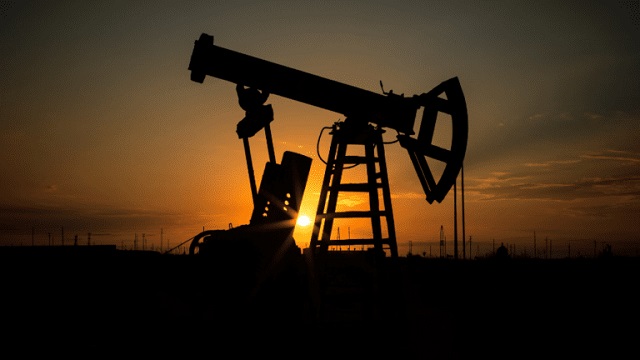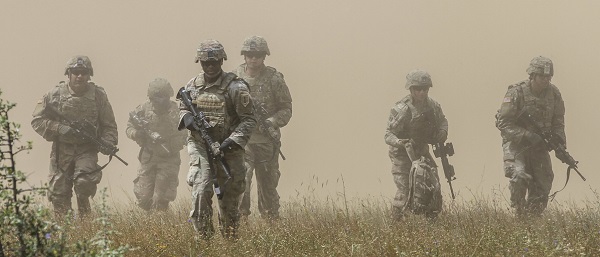Economy
Fossil fuels aren’t going anywhere, we benefit too much from them

From the MacDonald Laurier Institute
By Chris Sankey
Indigenous people are finally reaping the rewards.
Over the last eight years we have experienced an unprecedented push from environmental activists to phase out fossil fuels. The Government of Canada seems to think it is possible. During question period in the Senate earlier this year, Sen. David Wells noted that, according to the Liberals, the energy transition “will cost $100-$125 billion per year at least to 2050,” and asked “When Canada only emits 1.5 per cent of global emissions, how does this expenditure make sense?”
Let me repeat that. $125 billion each year.
Who is going to pay for this? This is simply not possible, unless people want to see the Canadian economy in ruins.
Without fossil fuels, life as we know it would not be possible. State-of-the-art lifesaving medical equipment comes from fossil fuels and critical minerals from mining. Critical infrastructure, vehicles, planes, trains, container ships, ferries, and the billions of household necessities we buy from Canadian Tire, Walmart, Amazon and Ikea come from fossil fuels and help us function in our everyday lives. Without these needs we simply do not prosper.
Take for instance the environmental marches we see on our streets. The protesters seemingly have zero understanding of what makes their marches possible? Yes, fossil fuels. If you are going to protest for “Just Stop Oil,” then climate activists have to stop blocking traffic, because an idling vehicle is so much harder on the environment. And what about showing up in clothing and holding up signs made of hydrocarbons demonstrates your commitment to saving the planet? Hypocrisy? Absolutely.
From the moment we come out of our mother’s body, fossil fuels make our lives better. From cradle to grave, our lives are intertwined with fossil fuels. Just think of the act of giving birth. Chances are the mother was rushed to hospital in an ambulance, helicopter, plane, your personal vehicle, or taxi. As grandparents, siblings, uncles, aunts and cousins arrive at the hospital in their fossil fuel-powered cars and trucks smiling ear to ear welcoming the new baby to the family. They show up with gifts likely made from fossil fuels and critical minerals. If it is not made from fossil fuels, they were most definitely transported to the store using fossil fuels.
It is time we stop kidding ourselves that we can step away from the oil and gas wealth upon which our country benefits so much.
Only now, it will be Indigenous communities who are going to lead the multi-billion-dollar opportunity and put Canada at the front of global markets as a preferred supplier. For far too long, activist’s voice have been the determining factor in how governments make decisions on this necessary industry in our territories.
We need to make sure we have a framework that lays out a technology transition where we produce cleaner oil and gas by using new technology that will reduce emissions and grow our economies.
Since the Liberals were elected in 2015 everywhere we turn, our resource sector is being badly hurt. Forestry, fishing, oil and gas are screaming for more production, but federal regulations threaten to not only destroy the energy industry, but all industries with the emissions cap. Renewables are costing taxpayers billions in subsidies and it will not end there.
Indigenous people have always took care of the environment and grown our economies. From fishing, logging, farming and hunting, we used fossil fuels to make it happen.
Obviously, humans did not use fossil fuels prior to the industrial revolution and indigenous people made hunting weapons out of wood and stone. Life was challenging for our ancestors back then; life expectancy was short for all people.
Over time, technology in the energy sector changed for the better. I would be remiss if I did not include the fact that industry did not always have modern clean tech; emissions were high and cancer-causing effects were widespread. That introduced chemicals foreign to indigenous people. Like all things, newer and safer technology emerged. Making life much easier and convenient.
However, historically speaking indigenous people lived on fat and protein. Everything we ate was natural. Like all things that come and go, European contact forever changed our way of life. We were greatly impacted in every possible manner, from social, cultural, status and creed. But like we always have, we persevered like our ancestors wanted us too.
This is our turn to take our rightful place on the global stage. We are watching it play out in real time around the world. Energy and food security is the number one priority around the world. Indigenous communities near and far are leading the way in the pursuit of sustainable development, but government and activists are hindering our ability to progress.
It is important that Canadians be realistic when it comes to the use of oil and gas. All of us want to leave our planet better for the next generation. To do so, we must manage expectations. Many countries are just now finally transitioning to oil and gas from more environmentally harmful coal and countries like India will not be carbon neutral until 2070 or later.
Our country has an abundance of resources that the world wants. They are literally knocking on our door to get access to our wealth. We can help countries like China, India and Indonesia move away from burning coal and wood, and thereby help lift millions out of certain poverty, and improve their health.
New climate change technology has emerged in the energy sector, such as carbon capture and storage that will reduce and eliminate emissions and the need for diluent in oil pipelines. Our combination of Indigenous knowledge and history to the land makes for a stronger argument to partner with Indigenous communities. Alignment amongst indigenous communities is key to securing a project. Proper alignment will de-risk a project and attract investment and industry to the table where we will have a seat and even equity.
Engagement with Indigenous communities is the solution. The vast majority of our people are not against development. We are only against development when we are excluded from the opportunities, or if the evaluation process was developed without Indigenous input.
It is not rocket-science. Include the people whose territory you want to build on. This is an opportunity to build relationships through meaningful dialogue and trust. We must have nation to nation dialogue and build leadership to leadership relationships. No hidden agendas, just up-front, honest conversations about oil and gas and the costs and benefits of development.
I am tired of watching our people struggle. Our people do not want to watch the prosperity boat sail by Poverty Island. Markets do not wait for anyone. We cannot keep waiting for the right time. We cannot keep waiting for life to get better. First Nations can make it better by being at the economic table where our people can bring traditional knowledge to industry and make decisions in the best interests of our communities. Whether we agree or not in the first instance, we need to be in the room working towards a brighter future, because at the end of the day we all need rubber boots too.
Chris Sankey is a Senior fellow at the MacDonald Laurier Institute, a former Elected Councilor for the Lax Kw Alaams Band and Businessman.
Business
Fuelled by federalism—America’s economically freest states come out on top

From the Fraser Institute
Do economic rivalries between Texas and California or New York and Florida feel like yet another sign that America has become hopelessly divided? There’s a bright side to their disagreements, and a new ranking of economic freedom across the states helps explain why.
As a popular bumper sticker among economists proclaims: “I heart federalism (for the natural experiments).” In a federal system, states have wide latitude to set priorities and to choose their own strategies to achieve them. It’s messy, but informative.
New York and California, along with other states like New Mexico, have long pursued a government-centric approach to economic policy. They tax a lot. They spend a lot. Their governments employ a large fraction of the workforce and set a high minimum wage.
They aren’t socialist by any means; most property is still in private hands. Consumers, workers and businesses still make most of their own decisions. But these states control more resources than other states do through taxes and regulation, so their governments play a larger role in economic life.
At the other end of the spectrum, New Hampshire, Tennessee, Florida and South Dakota allow citizens to make more of their own economic choices, keep more of their own money, and set more of their own terms of trade and work.
They aren’t free-market utopias; they impose plenty of regulatory burdens. But they are economically freer than other states.
These two groups have, in other words, been experimenting with different approaches to economic policy. Does one approach lead to higher incomes or faster growth? Greater economic equality or more upward mobility? What about other aspects of a good society like tolerance, generosity, or life satisfaction?
For two decades now, we’ve had a handy tool to assess these questions: The Fraser Institute’s annual “Economic Freedom of North America” index uses 10 variables in three broad areas—government spending, taxation, and labor regulation—to assess the degree of economic freedom in each of the 50 states and the territory of Puerto Rico, as well as in Canadian provinces and Mexican states.
It’s an objective measurement that allows economists to take stock of federalism’s natural experiments. Independent scholars have done just that, having now conducted over 250 studies using the index. With careful statistical analyses that control for the important differences among states—possibly confounding factors such as geography, climate, and historical development—the vast majority of these studies associate greater economic freedom with greater prosperity.
In fact, freedom’s payoffs are astounding.
States with high and increasing levels of economic freedom tend to see higher incomes, more entrepreneurial activity and more net in-migration. Their people tend to experience greater income mobility, and more income growth at both the top and bottom of the income distribution. They have less poverty, less homelessness and lower levels of food insecurity. People there even seem to be more philanthropic, more tolerant and more satisfied with their lives.
New Hampshire, Tennessee, and South Dakota topped the latest edition of the report while Puerto Rico, New Mexico, and New York rounded out the bottom. New Mexico displaced New York as the least economically free state in the union for the first time in 20 years, but it had always been near the bottom.
The bigger stories are the major movers. The last 10 years’ worth of available data show South Carolina, Ohio, Wisconsin, Idaho, Iowa and Utah moving up at least 10 places. Arizona, Virginia, Nebraska, and Maryland have all slid down 10 spots.
Over that same decade, those states that were among the freest 25 per cent on average saw their populations grow nearly 18 times faster than those in the bottom 25 per cent. Statewide personal income grew nine times as fast.
Economic freedom isn’t a panacea. Nor is it the only thing that matters. Geography, culture, and even luck can influence a state’s prosperity. But while policymakers can’t move mountains or rewrite cultures, they can look at the data, heed the lessons of our federalist experiment, and permit their citizens more economic freedom.
Business
The world is no longer buying a transition to “something else” without defining what that is

From Resource Works
Even Bill Gates has shifted his stance, acknowledging that renewables alone can’t sustain a modern energy system — a reality still driving decisions in Canada.
You know the world has shifted when the New York Times, long a pulpit for hydrocarbon shame, starts publishing passages like this:
“Changes in policy matter, but the shift is also guided by the practical lessons that companies, governments and societies have learned about the difficulties in shifting from a world that runs on fossil fuels to something else.”
For years, the Times and much of the English-language press clung to a comfortable catechism: 100 per cent renewables were just around the corner, the end of hydrocarbons was preordained, and anyone who pointed to physics or economics was treated as some combination of backward, compromised or dangerous. But now the evidence has grown too big to ignore.
Across Europe, the retreat to energy realism is unmistakable. TotalEnergies is spending €5.1 billion on gas-fired plants in Britain, Italy, France, Ireland and the Netherlands because wind and solar can’t meet demand on their own. Shell is walking away from marquee offshore wind projects because the economics do not work. Italy and Greece are fast-tracking new gas development after years of prohibitions. Europe is rediscovering what modern economies require: firm, dispatchable power and secure domestic supply.
Meanwhile, Canada continues to tell itself a different story — and British Columbia most of all.
A new Fraser Institute study from Jock Finlayson and Karen Graham uses Statistics Canada’s own environmental goods and services and clean-tech accounts to quantify what Canada’s “clean economy” actually is, not what political speeches claim it could be.
The numbers are clear:
- The clean economy is 3.0–3.6 per cent of GDP.
- It accounts for about 2 per cent of employment.
- It has grown, but not faster than the economy overall.
- And its two largest components are hydroelectricity and waste management — mature legacy sectors, not shiny new clean-tech champions.
Despite $158 billion in federal “green” spending since 2014, Canada’s clean economy has not become the unstoppable engine of prosperity that policymakers have promised. Finlayson and Graham’s analysis casts serious doubt on the explosive-growth scenarios embraced by many politicians and commentators.
What’s striking is how mainstream this realism has become. Even Bill Gates, whose philanthropic footprint helped popularize much of the early clean-tech optimism, now says bluntly that the world had “no chance” of hitting its climate targets on the backs of renewables alone. His message is simple: the system is too big, the physics too hard, and the intermittency problem too unforgiving. Wind and solar will grow, but without firm power — nuclear, natural gas with carbon management, next-generation grid technologies — the transition collapses under its own weight. When the world’s most influential climate philanthropist says the story we’ve been sold isn’t technically possible, it should give policymakers pause.
And this is where the British Columbia story becomes astonishing.
It would be one thing if the result was dramatic reductions in emissions. The provincial government remains locked into the CleanBC architecture despite a record of consistently missed targets.
Since the staunchest defenders of CleanBC are not much bothered by the lack of meaningful GHG reductions, a reasonable person is left wondering whether there is some other motivation. Meanwhile, Victoria’s own numbers a couple of years ago projected an annual GDP hit of courtesy CleanBC of roughly $11 billion.
But here is the part that would make any objective analyst blink: when I recently flagged my interest in presenting my research to the CleanBC review panel, I discovered that the “reviewers” were, in fact, two of the key architects of the very program being reviewed. They were effectively asked to judge their own work.
You can imagine what they told us.
What I saw in that room was not an evidence-driven assessment of performance. It was a high-handed, fact-light defence of an ideological commitment. When we presented data showing that doctrinaire renewables-only thinking was failing both the economy and the environment, the reception was dismissive and incurious. It was the opposite of what a serious policy review looks like.
Meanwhile our hydro-based electricity system is facing historic challenges: long term droughts, soaring demand, unanswered questions about how growth will be powered especially in the crucial Northwest BC region, and continuing insistence that providers of reliable and relatively clean natural gas are to be frustrated at every turn.
Elsewhere, the price of change increasingly includes being able to explain how you were going to accomplish the things that you promise.
And yes — in some places it will take time for the tide of energy unreality to recede. But that doesn’t mean we shouldn’t be improving our systems, reducing emissions, and investing in technologies that genuinely work. It simply means we must stop pretending politics can overrule physics.
Europe has learned this lesson the hard way. Global energy companies are reorganizing around a 50-50 world of firm natural gas and renewables — the model many experts have been signalling for years. Even the New York Times now describes this shift with a note of astonishment.
British Columbia, meanwhile, remains committed to its own storyline even as the ground shifts beneath it. This isn’t about who wins the argument — it’s about government staying locked on its most basic duty: safeguarding the incomes and stability of the families who depend on a functioning energy system.
Resource Works News
-

 Crime11 hours ago
Crime11 hours agoTerror in Australia: 12 killed after gunmen open fire on Hanukkah celebration
-

 Energy2 days ago
Energy2 days agoCanada’s future prosperity runs through the northwest coast
-

 Crime11 hours ago
Crime11 hours agoHero bystander disarms shooter in Australian terror attack
-

 Business18 hours ago
Business18 hours agoInflation Reduction Act, Green New Deal Causing America’s Energy Crisis
-

 Business1 day ago
Business1 day agoFuelled by federalism—America’s economically freest states come out on top
-

 Daily Caller1 day ago
Daily Caller1 day ago‘There Will Be Very Serious Retaliation’: Two American Servicemen, Interpreter Killed In Syrian Attack
-

 illegal immigration2 days ago
illegal immigration2 days agoUS Notes 2.5 million illegals out and counting
-

 Automotive1 day ago
Automotive1 day agoPoliticians should be honest about environmental pros and cons of electric vehicles



